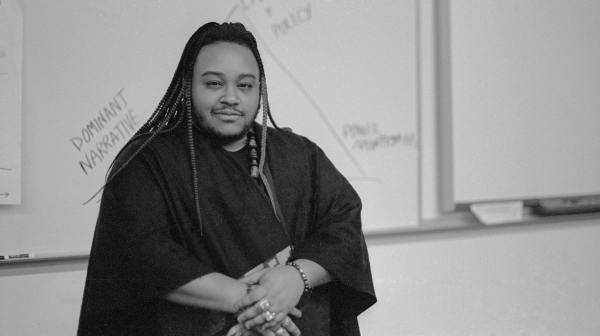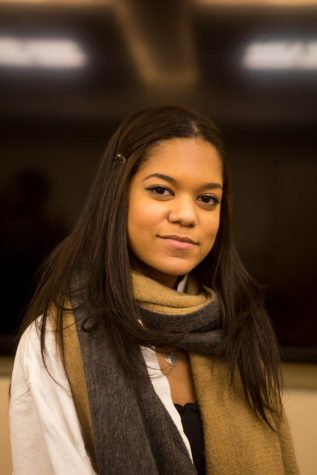The Positive II Hosts Organizer’s Toolbox Workshop
March 14, 2018
On Feb. 28, The Positive II, a student-run organization primarily fighting for gender and sexuality equity on campus, hosted an workshop-style event led by Sasha Alexander, a panelist at a Fordham event last spring entitled “Let Trans Women Live.” Forty-nine people attended the workshop that focused on the fundamentals of community organizing, as well as helping the students build their own organizing toolbox.
The workshop was highly interactive with the attendees upon trying to build a student’s toolbox. They learned effective methods of campaign organizing, power mapping and different methods of nonviolent acts.
In addition, each student was given notebooks outlining the methods of nonviolent protest and persuasion, courtesy of the Sylvia Rivera Law Project (SRLP), as the understanding of each concept is essential to community organizing in a peaceful fashion. This further helps the students build their organizing toolbox as it provides them with several strategies they can act upon when confronted with economic and political noncooperation.
Alexander is the Membership Director at the SRLP, a project named after a “pioneer in the early trans rights and intersectional movement,” as stated by Alexander. Sylvia Rivera is widely known for founding the Street Trans Action and Revolutionaries (STAR) group in 1970 and was a loud voice advocating against gender discrimination, fighting for the Sexual Orientation Non-Discrimination Act (SONDA) in the city of New York.
The Positive II is a “resurgence of the [2014] movement,” as stated by the student hosts, hence the roman numeral in the name of the group. That movement was led by student activists who fought to pursue greater transgender rights and access on Fordham’s campus, as well as obtain more visibility for gender non-conforming and trans students.
One of the current student leaders, Eliza Putnam, Fordham College at Lincoln Center (FCLC) ’18, stated that “The Positive is the gender-inclusive coalition advocating for increased access and inclusion in the university for trans, non-binary students and community members.” Putnam said that The Positive II is working towards getting the University’s approval to install All Gender Restroom signage on single-occupancy bathrooms.
The interactive event was the first of a three-part speaker series at Fordham on the politics of queer and transgender visibility. It was also funded by the Deans of FCLC and co-sponsored by the political science department, the women’s gender and sexuality studies department, the American studies department and the Rainbow Alliance.
Sasha Alexander stated that the focus was primarily on the students attending the workshop, as they all are ultimately able to be student organizers, and learn how to “think about the climate we’re dealing with politically.” Alexander also stated that they hoped that, as organizers working for social justice, the workshop would allow the students to get a sense of where the opportunities, as well as the threats, are in regards to organizing.
“Organizing helps put pressure, raise visibility around issues and offer a different kind of support than a legal strategy does,” they stated. Part of the workshop consisted of familiarizing the students, as “an important part of organizing is to connect people” because “relationship building is one of the most important parts of changing oppression and working towards liberation.”
Following that idea, Alexander told all of the attendees to state their name, the pronouns they identify with and what social issue they’d like to see change in. It led the students to see mutual interests and concerns within the group, which ultimately allowed them to feel more connected to one another, as well as see potential members or “allies” to form a student-led organization on campus.
As the main focus was on community organizing and the theory of social change, the rest of the workshop consisted of doing a power analysis, “a really great tool for mapping out where you have support and the unorganized bodies of people that exist that have decision-making powers,” such as a big group of united students.
With Sasha Alexander’s guidance and utmost help, the students had to apply what they had learned during the workshop. Following the brief lesson on power mapping and the difference in power that depends on an individual’s position in a community, the students had to work with the example of bathroom access on campus. They had to discern the map key players in this specific situation, such as who their potential allies would be, as well as the decision makers, the organized opposition and the unorganized constituencies that would be involved.
The Positive II and Sasha Alexander hope that more students will be involved in the upcoming future and that there’ll be an increase in students advocating for social justice on campus. Many students were hopeful at the end of the event, and some revealed that they had come from Fordham College at Rose Hill (FCRH) solely to attend the workshop led by Sasha Alexander.













